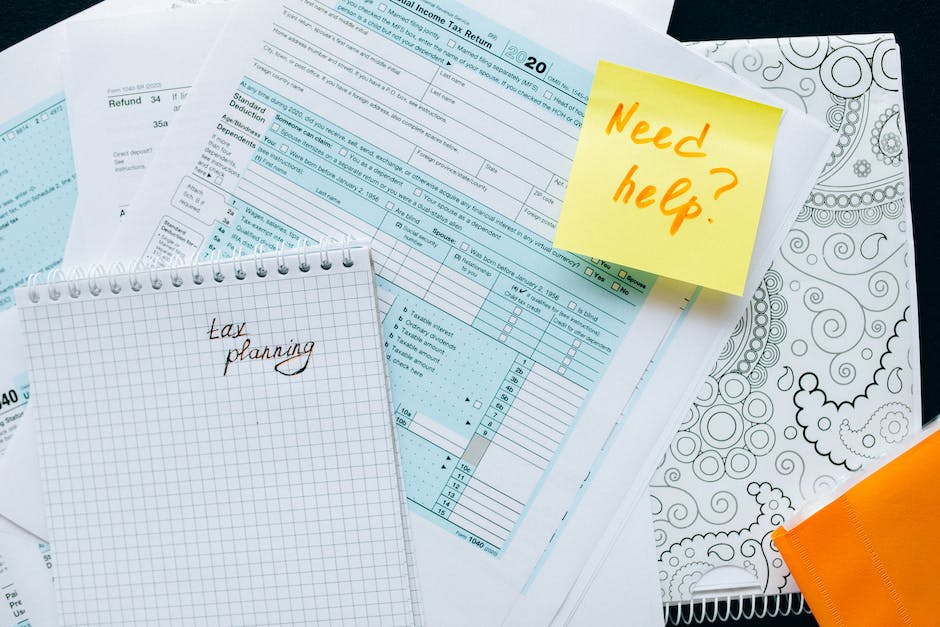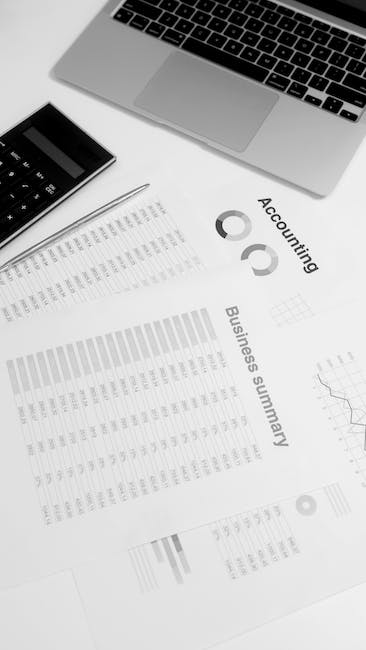In life, you work hard and save up for a comfortable retirement. However, without careful tax planning, all your efforts may go in vain, and your retirement may not be as comfortable as you hoped it would be. Tax planning can help you minimize your tax burden and maximize your savings so that you can have a successful retirement. Here are ten tax planning tips that can help ensure a comfortable and financially secure retirement.
Maintain a Clear Financial Plan

While most people aim for a comfortable retirement, not many take the time to develop a solid financial plan for it. A well-structured financial plan is essential for accurately estimating the amount needed for retirement, and to help guarantee access to it after you retire. A comprehensive financial plan can also help identify opportunities to reduce your tax burden that you may have otherwise overlooked.
To ensure the development of a comprehensive financial plan, consider hiring a financial advisor who can guide you through the process from start to finish. The process will start with determining your short and long-term goals for the retirement years. It will also involve creating a budget plan for retirement and identifying potential risks that pose a threat to your savings. Once you have a clear financial plan in place, you’ll be able to identify more opportunities for reducing your tax burden and maximize your savings accordingly.
Maximize Your Retirement Contributions

The best way to build a robust retirement fund and reduce your tax liability is through regular contributions to a retirement account. Contributions to 401(k) or an IRA can reduce your taxable income, thereby minimizing your tax burden. You still have time to make contributions for the current year, so start contributing religiously to accumulate savings for your retirement. Maximizing your contributions is the best way to reduce your taxable income and boost your retirement savings.
Additionally, IRA contributions for people above the age of 50 attract higher limits. For example, a regular IRA account has a contribution limit of $6000, and the limit for a catch-up contribution is $1000 per year. This addition means that those aged 50 or above can contribute up to $7000 to their IRA accounts per year. You can also make use of the 401(K) catch-up contribution if you’ve crossed the age of 50.
Consider a Roth Conversion

A Roth IRA provides many tax benefits that other types of retirement accounts do not offer. Depending on your financial situation and tax bracket, converting a traditional IRA to a Roth IRA could be a smart move. By paying taxes on the conversion now, you can benefit from tax-free withdrawals in the future, giving you more control over your tax burden in retirement.
But careful consideration of the conversion process is essential. Paying for the conversion with funds from the traditional IRA is likely to create a significant taxable event, potentially increasing your taxable income band. As such, consider converting your payment amount for several years to avoid reaching a higher tax bracket. A financial professional can help guide you through the pros and cons of such a conversion.
Don’t Forget About Healthcare

One of the largest expenses in retirement is healthcare. While Medicare covers most healthcare expenses for those over 65, it doesn’t cover everything. Health care costs that you will incur, such as long-term care or prescription costs, are usually out of pocket expenses in addition to Medicare. Therefore, it’s important to budget for healthcare in your retirement planning. You may want to consider a Health Savings Account (HSA), which offers tax-free contributions and withdrawals for qualified medical expenses.
With the expanding age and worsening health problems that often accompany retirement, the cost of healthcare in retirement will continue to rise. You can control this by creating a budget that accounts for your medical expenses and, if possible, find ways to reduce your medical expenses such as utilizing health clinics that may offer free or reduced costs on certain services.
Delay Your Social Security Benefits

You may be eligible to take Social Security benefits immediately or at the age of 62. However, delaying benefits can be a smart way to maximize your retirement income. Every year you delay taking benefits, your benefits increase by about 8%. Delaying benefits can also help reduce taxable income, allowing you to keep more of your hard-earned savings. Starting social security benefits at the benefit’s age of 70 will increase your payment amount by 32% than your full retirement age benefit.
Many people prefer to take their social security benefits earlier than usual because they fear the government will reduce or eliminate their benefits in the future. But, it’s necessary to counter-check the social security administration’s website or meet with a financial professional to make sure that you are receiving the maximum available benefits.
Consider Working with a Tax Professional

While there is an abundance of tax planning tools available, the tax code can be complex and difficult to navigate. Working with a tax professional can be helpful in identifying opportunities to reduce your tax burden and provide guidance on how to maximize your retirement savings. The tax professional will guide you through complexities such as tax laws and regulations, which can help reduce your tax burden and maximize your savings. They can also provide visualization so that you understand the tax planning strategies and be able to make informed decisions about pension savings.
Don’t Forget About Estate Planning

Nothing is permanent, and the end of life is a given in life’s journey; hence it is imperative that you plan for it. Estate planning is a crucial aspect of preparing for a successful retirement, and it can help ensure that your assets are distributed according to your wishes while minimizing taxes that your heirs may have to pay.
When planning your estate, it’s essential to consider your family’s needs, caretaking needs, and how your assets will be used. Some of the aspects that need critical evaluation include creating a will to ensure your family is not left fumbling over the distribution of your assets, and setting up a trust to ensure the protection of your assets. Estate planning can help ease the stress of such issues and ensure that you enjoy a worry-free retirement.
Manage Your Investment Portfolio
As you gear up to close on retirement, it’s essential to adjust your investment portfolio to reduce risk and maximize growth. As such, a well-diversified portfolio that includes a mix of stocks, bonds, and other investments can help protect your savings and provide a steady stream of income in retirement. Review your investments regularly and adjust your portfolio to help ensure it aligns with your evolving needs and risk tolerance.
It’s also important to note that investment fees can take a considerable chunk of your returns. So, take the time to evaluate your investment expenses, and invest in a discount broker to lower transactions cost. You can also invest in low-cost index funds to reduce your ongoing maintenance costs.
Be Mindful of Required Minimum Distributions
Once you reach age 72, you will need to start taking Required Minimum Distributions (RMDs) from your retirement accounts, including IRAs and 401(k)s. Failing to take RMDs can result in significant penalties, so it’s crucial to stay on top of them. A financial advisor, tax professional, or a retirement account specialist can help you determine the appropriate amount to withdraw each year.
Preparation for the RMDs comes in handy before you hit the age of 72. You can start taking distributions from your accounts early and take advantage of lower tax brackets to avoid reaching a higher tax bracket and paying more taxes.
Stay Up-to-Date on Tax Law Changes
Tax laws and regulations are continually changing. Some tax-planning strategies might become obsolete while new strategies emerge. Staying up-to-date on tax law changes can help ensure you identify new opportunities to reduce your tax burden and avoid making costly mistakes. Read up on taxation laws and take advantage of the resources available to help remain informed.
In conclusion, retirement is a journey that requires careful tax planning to succeed. While it can be complex and challenging, the tips mentioned will help you maximize your retirement savings and reduce your tax burden. You can also seek the services of a tax professional or financial advisor to ensure a worry-free retirement.







